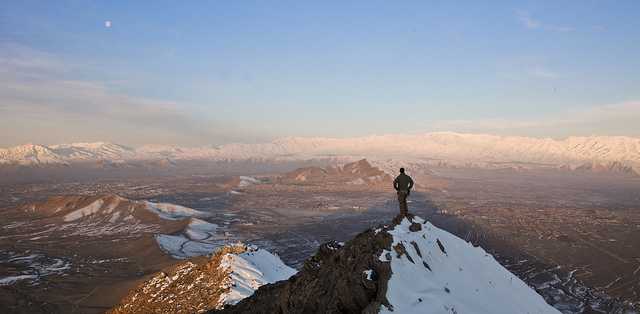
Image by DVIDSHUB on flickr.com
Today’s post is a response to one of our readers who have asked us to teach him the Dari proverb that says, “There is a road to the top of even the highest mountain”. No wonder Afghans use mountains in their proverbs. When you go to Afghanistan there are very few places that you will not see mountains. They are everywhere! Anyways, let’s get to the bottom of the proverb about the mountain. The proverb in Dari is کوه هر قدر بلند باشد باز هم سر خود راه دارد. [ koh har dadar boland bashad baaz ham sar e khod rah darad].
This proverb is used to motivate people to not give up and keep trying. Sometimes it is also used to describe that regardless of how powerful someone is there is still someone else more powerful than him or her. It can be used in many different contexts, however as the learners of Dari as a second language I encourage you to go for the first option and use it to motivate people, because that is the most appropriate and common use. Also other usages require a deeper understanding of the context and culture.
The following is the vocabulary used in the proverb:
کوه koh mountain
بلند boland high
باز هم baaz-ham still
راه rah way/path/road
دارد darad He/she/it has
And finally, here is the literal translation of the proverb: “however much a mountain higher is, still on it
a way it has.” We usually include the literal translation of the resentences in order to help you see how the structures of the sentences in Dari work. For example, in the literal translation above, we can see that the verb “has” is at the very end of the sentence which shows us that the verb in Dari comes at the very end of a sentence.
Please leave your comments and questions in the comment area and we will be happy to respond.






Comments:
Angela:
Thank you. Please continue the great posts.